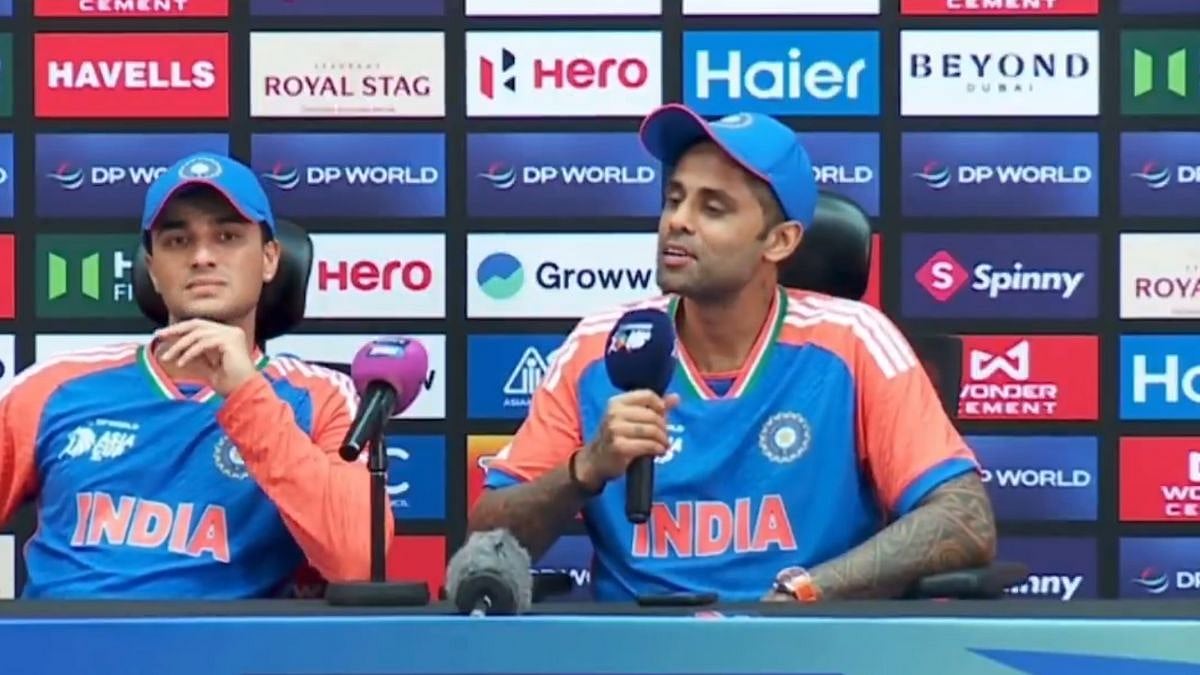The decision of Chhattisgarh High Court disallowing the charges of rape under Section 375 of the Indian Penal Code, 1860 (IPC) but proceeding to uphold charges under Section 377 of IPC for unnatural offences i.e., ‘carnal intercourse against order of nature’ had instantly hit headlines, as it should have rightly. However, other than being sensational news, the issue has not been addressed or acknowledged with concern by the right person at the right place. The decision, passed by Justice N.K. Chandravanshi on 23rd August, 2021, had observed/recorded the charges against the accused, inter alia, harassment by demand of dowry, unnatural (anal/oral) physical relation by inserting radish, finger, and forced sex.
The punishment meted out for ‘Unnatural offences’ under Section 377 and ‘Rape’ under 365 maybe similar viz., imprisonment for life or imprisonment extending to 10 years and fine. So why is there a hue and cry for the decision? The issue lies with the continuation of the archaic law of exception of marital rape in India. Though this exception had been done away with in various other countries, including UK, wherefrom, our law was adopted by India. The refusal to consider let alone omit the rule of ‘marital exemption’ is proof enough to establish the development of Indian society in respect of gender inequality and possibly the political/legislative will to amend laws to initiate changes for the society to adopt.
The judges reflect the legislation, and the legislation in turn reflects the society. If it all boils down to that, then we must say that we have failed as a society by not implementing what the founding fathers had envisaged for India. Inasmuch as the Preamble of India mandates to secure ‘Equality’ and ‘Fraternity’ to all and the Constitution of India right to life, equality and security to a person, yet, the Indian Penal Code, the governing criminal laws of India, overlooks the fundamentals of this notion.
The inclination to de-criminalize forced sex (rape) committed by a man, in the guise of basic right arising out of wedlock, as opposed to the women’s basic human rights to actively consent to intercourse during unendurable circumstances is appalling. It can be said that this is attributable to the inequality that was inherited by the oppressed, especially women, due to the long ruling of sexist, patriarchal, authoritative and conservative societal mould and inturn politics. The inaction of the lawmakers to criminalize marital rape indicates a failure to recognize the gender equality that is enshrined in the Preamble and the Constitution of India, which guarantees to all citizens right to equality and a life of dignity. Failure to exercise power is equally, if not more, dangerous than exercising the power to abuse by the lawmakers and the conscious keeper or as Dante Alighieri said ‘The hottest places in hell are reserved for those who, in times of great moral crisis, maintain their neutrality’
Rape has been recognized as one of the heinous crime and a crime against human dignity and society and one where the man is recognized as an animal, yet, the Indian Penal Code carves out an exception to this crime.
The International Court of Law has held rape to be a crime against humanity and has held that "Rape is a form of aggression. Rape is a violation of personal dignity," and "Rape and sexual violence constitute one of the worst ways of harming the victim as he or she suffers both bodily and mental harm."
Principal of Marital Exemption to Rape
Three theories can be attributed to the principle that a husband cannot possibly commit rape against his wife – the implied consent (irrevocable and implied consent given by the wife at the time of marriage), unities of person (both are said to be one person and thus husband cannot be said to rape himself) theory and property theory (wife being the property of the husband can be enjoyed by him as he pleases). Other challenges that prevents the law from being struck down or omitted include, inter alia, the interference of the state in the institution of marriage and lack of proof of rape.
The concept of forced sex during marriage not considered illegal is adopted from Common law. The point of view though immemorial, the principle was first established in writing by Chief Justice Hale in 1736, whereby, he had observed in ‘History of the Pleas of Crown’ that “the Husband cannot be guilty of rape committed by himself upon his lawful wife, for their mutual matrimonial consent and contract the wife hath given herself up in this kind unto her husband which she cannot retract”.
However, even the UK law has taken cognizance of this archaic law and amended the legal position since R v R in (1991) 4 All ER 481, where, the House of Lords held “rule that a husband cannot be criminally liable for raping his wife if he has sexual intercourse with her without her consent no longer forms part of the law of England since a husband and wife are now to be regarded as equal partners in marriage and it is unacceptable that by marriage the wife submits herself irrevocably to sexual intercourse in all circumstances or that it is an incident of modern marriage that the wife consents to intercourse in all circumstances, including sexual intercourse obtained only by force.”
Relevant provision under IPC
The definition of ‘Rape’ under Section 375 the Indian Penal Code sets out various sexual intercourse and acts and deems two exceptions to rape, one being, ‘sexual intercourse or sexual acts by a man with his own wife, the wife not being under fifteen years of age’ is one such. The punishment for ‘rape’ under Section 376 of the Act is rigorous imprisonment of ten years, which may extend to imprisonment for life.
Departure from the punishment of crime of rape is carved out for a husband in Section 376B of IPC, where, the punishment for rape of wife during separation is 2-7 years imprisonment and fine, which is lesser punishment atleast by 8 years. Further, Section 498A imposes punishment of imprisonment of 3 years and fine for cruelty (by causing bodily or mental harm) by a husband or relatives of the husband on the woman. Thus mitigating rigorous punishment by atleast 7 years.
There are various efforts made by the legislature to mention crimes committed by the husband or his family against the wife, yet, the punishments are mitigated and thus falling foul of Article 14 and 21 if the Constitution of India inasmuch as the same is contrary to the principles embodied in the Preamble.
Also, to answer the first question raised, Section 377 of the IPC does not cover ‘rape’ but only ‘unnatural sexual relationship’. Though the later has not been defined in the statute, as per the judicial history, Section 377 describes ‘unnatural sexual relationship’ as an unnatural way to derive sexual pleasure, inter alia, sodomy, and/or oral sex involving sex organs of man, woman and animals or bestiality or as per the discretion of the judge. However, the term ‘rape’ has been defined to include various sexual intercourse or acts under Section 365 of the Act. On a conjoint reading of both the provisions, it is said that it is but natural for a husband to have sexual intercourse or acts with his wife, with or without consent, however, for the same to be punishable under Section 377 of the IPC, there must be an element of unnatural sexual relationship in the mind of the Judge. Thus, the alternative provisions under Section 377 and 498A, requires elements more than rape defined under Section 365 of the IPC and thus discriminatory.
Domestic Violence Act, 2005 was passed by the Legislation with the intention to protect women from any bodily harm or threat when harassed or abused during marriage and prescribes for civil remedies for the wife. Though the legislation is a step forward for supporting the victim of sexual violence and abuse in the marriage, the same does not progress any further by punishing the perpetrator as restore must be had the IPC for the same.
Numerous cases are lodged and reported for domestic violence, sexual harassment, dowry-related violence and it is also considered by society that a woman is physically weaker sex and yet there is an exception to ‘coercion’ of sexual intercourse or acts by the husband on the wife.
History of challenge of Marital Rape in India
Attempts have been made to remove the above exception, though without any avail.
The Apex Court, in Sakshi V Union of India [1999 (6) SCC 591], had directed the Law Commission of India to look into the feasibility for amendment to various provisions of the Indian Penal Code in relation to ‘sexual abuse’ as submitted by Sakshi in their Petition. Pursuant to the directions, the report of the Law Commission of India records the request, by representatives of Sakshi, to recommend deletion of exception to marital rape. However, it was concluded that they were not ‘satisfied’ with the recommendation as deletion of the same may amount to excessive interference with the marital relationship.
The ‘Report of Committee on Amendment to Criminal Law’ chaired by Justice J.S.Verma (Rtd) [in short Verma Committee Report] had also taken cognizance of the issue of marital rape and had recommended that the exception of marital rape under Section 375 of IPC to be removed. It proceeded to state that the marital or other relationship between the perpetrator or victim is not a valid defence against the crimes of rape or sexual violation nor should it be valid ground for mitigating the punishment of the crime.
Consequence of Marital rape on women
Marital rape is a traumatic form of rape as the husband is likely to rape the wife many times in view of the proximity and access to the victim. It is observed in history that, whenever there is an assumed power, one expression of power by humans is abuse or coercion.
As widely accepted, India follows a patriarchal system, where the men in the house are assumed to be the decision takers or in charge. The change in the mindset is fairly a new phenomenon, whereby, both men and women are considered to be equal, which in itself can only be found in the metro cities.
In the decision of Naz Foundation v Government of Delhi & Ors, the High Court of Delhi, inter alia, held that if there is any type of morality that can pass the test of compelling state interest, it must be constitutional morality and not public morality.
The need for women to opt for an alternative charge and denial of the main charge basis a stigma and bias is a human right violation and contrary to Article 14 and 21 of the Constitution of India and the Preamble. The detrimental effect on women is inhuman and to hide behind the notions of sacrosanct of the institution of marriage is cruel.
Those against the proposition of criminalization of marital rape raises challenges and objections in regard to inadequacy or admissibility of evidence against the husband. However, isn’t that the case with every other case? Shouldn’t the law of evidence be uniform for all? Isnt that the concept of democracy pro representation? Why call a killing of wife by husband murder but rape by a husband not rape!?! We can question more & find nothing but excuses based on a notion created behind this law and devoid of any scientific base.
As mentioned in the Weishaupt v. Commonwealth it is ‘Hard to imagine how charging a husband with the violent crime of rape can be more disruptive than the violent act itself.’
Necessity to penalize the crime
The tendency to think and thus deem that rape cannot be said to be committed by a husband on his wife and that it can only be committed by a stranger on a woman is inhuman and unconstitutional.
To deviate slightly, though of the same crime yet on the same traditional belief, there was even outrageous option offered by the Supreme Court in open court to a rape offender to either marry his victim or to be penalized for the crime. This is yet another horrid example of treating a heinous crime and denying constitutional rights of an individual over mere public morality. It is past time, by decades, to call a spade a spade, Murder a murder and rape a rape!
The difficulties perceived in proving rape in the case of a husband on a wife should be no different from proving rape in the case of any other man on any other woman, if both are governed by Indian Evidence Act. A woman being denied the protection of the state against a crime committed against her on the basis of a differentiation or classification drawn by the legislation based on marital status alone seems arbitrary and discriminating inasmuch as the same is violative of Article 14 and 21 of the Constitution of India and thus unconstitutional.






.png)



